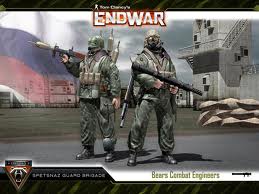73 posts
• Page 3 of 3 • 1, 2, 3
How are you gonna play?
-

noa zarfati - Posts: 3410
- Joined: Sun Apr 15, 2007 5:54 am
-

Nicholas - Posts: 3454
- Joined: Wed Jul 04, 2007 12:05 am
I'm gonna be neutral most likely and wipe out towns! However, I might also be good sometimes, so I choose `neutral`.
I plan on being so evil that mother-in-law's everywhere will be running from me in terror. Good is just so overdone now-a-days. lol
Remember what Eddie Murphy said: "Evil is Good".
(Cookie if you name the movie reference...)
-

Nicole Elocin - Posts: 3390
- Joined: Sun Apr 15, 2007 9:12 am
I like to play as Evil because in RL I am a very nice and respectful person, and this allows me to go from like Dr. Jackal to Mr. Hyde and get whatever I want. I usually play how I would realistically play (Good) my second or third play through.
-

Karine laverre - Posts: 3439
- Joined: Tue Mar 20, 2007 7:50 am
I have no expectations or plans for the first time through. That's going to come down to Beth and whatever seems right at the moment. I would expect it'll work out to more or less neutral.
If I play it more than once, I'll play something else. If I play it enough times, I'll play about everything imaginable.
If I play it more than once, I'll play something else. If I play it enough times, I'll play about everything imaginable.
-

christelle047 - Posts: 3407
- Joined: Mon Apr 09, 2007 12:50 pm
Amoral, I think.
To me, an amoralist is one who has consciously rejected the concept of morality, not one who simply has no comprehension of it. The latter I would simply call 'ignorant'.
-

Lawrence Armijo - Posts: 3446
- Joined: Thu Sep 27, 2007 7:12 pm
Im gonna be bad most of the time gonna kill people wipe out towns. and kill counts
-

Céline Rémy - Posts: 3443
- Joined: Sat Apr 07, 2007 12:45 am
i usually make decisions that i feel benefit my character most....so generally neutral borderline evil
-

Tyrone Haywood - Posts: 3472
- Joined: Sun Apr 29, 2007 7:10 am
well if you start the game off being led to your execution you proubly did something bad, so im going to choose evil/neutral since im clearly a murderer or something.
-

Charlotte Henderson - Posts: 3337
- Joined: Wed Oct 11, 2006 12:37 pm
Good and evil are mortal perceptions, which most of my character's dont follow. I'm almost always role playing as a sorcerer, or necromancer that just doesn't care about morality. So I guess by mortal perception's my character would be considered neutral or evil, but in my mind my character has no such alignments, thus giving him no limitations on what actions he can choose to take.
-

GabiiE Liiziiouz - Posts: 3360
- Joined: Mon Jan 22, 2007 3:20 am
I'm gonna be good... as far as anyone knows :hubbahubba:
-

JAY - Posts: 3433
- Joined: Fri Sep 14, 2007 6:17 am
Can someone explain the chaotic good and stuff like that to me?
-

Gill Mackin - Posts: 3384
- Joined: Sat Dec 16, 2006 9:58 pm
Can someone explain the chaotic good and stuff like that to me?
social worker on meds? :ahhh:
-

Abi Emily - Posts: 3435
- Joined: Wed Aug 09, 2006 7:59 am
Chaotic Good...like Robin Hood.
Edit:
http://en.wikipedia.org/wiki/Alignment_%28Dungeons_%26_Dragons%29#Chaotic_Good
Edit:
Can someone explain the chaotic good and stuff like that to me?
http://en.wikipedia.org/wiki/Alignment_%28Dungeons_%26_Dragons%29#Chaotic_Good
-

Kahli St Dennis - Posts: 3517
- Joined: Tue Jun 13, 2006 1:57 am
for my main it will be evil thief, but then ill make a good mage
-

Star Dunkels Macmillan - Posts: 3421
- Joined: Thu Aug 31, 2006 4:00 pm
I'll play as a good law-abiding imperial. Might join the fighters guild, if it's still there that is.
-

Jamie Lee - Posts: 3415
- Joined: Sun Jun 17, 2007 9:15 am
evil ... good
i used to have a argonian who before he redeemded himself did have a fame of 99 and a infame of 79 ... He was a ruthless Murderer in a way but wasn't a pyschopatic killer, he helped ending the oblivion crisis gived him lots of fame, and even helped people around, since he couldn't stand injustice ....
No , the truth to say he wasn't that evil ... He used needed to control his feelings and that is why he went to the Dark Brotherhood ...
'evil and good' ... What is evil and what is good, what is 'evil' from one point of view is 'good' from another point of view .... It also has lots to do with upbringing and yes propaganda ....
i used to have a argonian who before he redeemded himself did have a fame of 99 and a infame of 79 ... He was a ruthless Murderer in a way but wasn't a pyschopatic killer, he helped ending the oblivion crisis gived him lots of fame, and even helped people around, since he couldn't stand injustice ....
No , the truth to say he wasn't that evil ... He used needed to control his feelings and that is why he went to the Dark Brotherhood ...
'evil and good' ... What is evil and what is good, what is 'evil' from one point of view is 'good' from another point of view .... It also has lots to do with upbringing and yes propaganda ....
-

Miguel - Posts: 3364
- Joined: Sat Jul 14, 2007 9:32 am
Good and Evil are irrelevant, there are only personal values.
Traditional alignment systems are too limiting, and definitions of good and evil differ widely. Part of what I like in RPGs are choices that needle around in the gray areas, and narrow alignments are part of what I always hated about D&D. Palladium/Rifts had a better alignment system where you could choose from alignments like principled, anarchist, aberrant, miscreant, etc. but even that didn't do a good job of modelling value systems.
I might say I'm good.
The guy sitting next to me might say "Then why are you killing every last elf you see?"
"Because I'm a good nord and elves are a cancer that must be removed!" Or if I'm playing an argonian I might kill all dunmer, etc.
Or how about a choice between saving a child or saving an entire village of people who have done some bad things, but might change for the better as well.
Or what if stealing something might harm a household but enable me to unmask a corrupt noble who harms many? What now if that 'many' is mostly fat merchants who can absorb the losses better than the household?
So in the absence of a fourth choice labeled "Alignments are irrelevant" I'll have to abstain.
Traditional alignment systems are too limiting, and definitions of good and evil differ widely. Part of what I like in RPGs are choices that needle around in the gray areas, and narrow alignments are part of what I always hated about D&D. Palladium/Rifts had a better alignment system where you could choose from alignments like principled, anarchist, aberrant, miscreant, etc. but even that didn't do a good job of modelling value systems.
I might say I'm good.
The guy sitting next to me might say "Then why are you killing every last elf you see?"
"Because I'm a good nord and elves are a cancer that must be removed!" Or if I'm playing an argonian I might kill all dunmer, etc.
Or how about a choice between saving a child or saving an entire village of people who have done some bad things, but might change for the better as well.
Or what if stealing something might harm a household but enable me to unmask a corrupt noble who harms many? What now if that 'many' is mostly fat merchants who can absorb the losses better than the household?
So in the absence of a fourth choice labeled "Alignments are irrelevant" I'll have to abstain.
-

Vahpie - Posts: 3447
- Joined: Sat Aug 26, 2006 5:07 pm
Hmm, I always play as good as long as people are watching me. The whole world loves me, but in reality I'm responsible for all the mysterious murders arround town and I stole all their stuff. When I get the choice to be good or a real bastard, I will be the later. Big towns are generaly save, but little villages are not. If I can get away with it I will do it. No matter how evil the society sees it. What would you class a character like that?
-

Tanika O'Connell - Posts: 3412
- Joined: Fri Jan 26, 2007 1:34 am
Well, playing "good" or "evil" is unrealistic, and objective morality does not exist, so I'll be playing the same exact way I play every character: neutral. All of my characters have their own morality and their own views of their actions, and none of them view themselves as evil.
-

Louise - Posts: 3407
- Joined: Wed Nov 01, 2006 1:06 pm
73 posts
• Page 3 of 3 • 1, 2, 3
